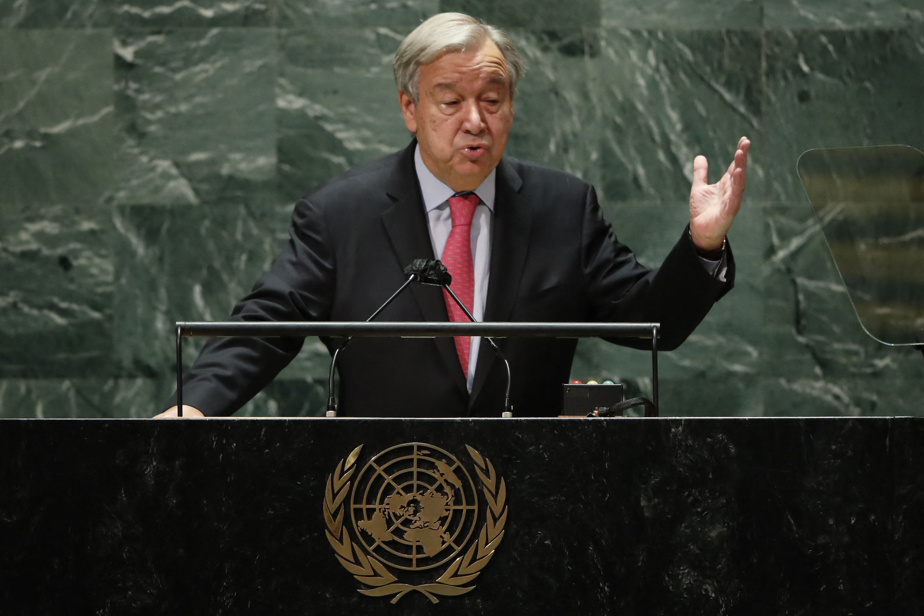(Milan) The United Nations Secretary-General warned Thursday during a preparatory meeting for the COP26 climate conference that leaders of the planet must choose between “saving our world” or “condemning humanity to a hellish future.”
“There is only one month before COP26, the most important climate conference since Paris” in 2015 where the agreement was made to limit warming to below +2°C, if possible +1.5°C compared to pre-industrial times, Antonio said. Guterres, ministers from dozens of countries are meeting in Milan until Saturday.
“I cannot stress enough that time is running out,” he added, according to the text of his speech broadcast by the United Nations, “irreversible turning points are approaching alarmingly.” But “we have enormous power. We can either save our world or condemn humanity to a hellish future.”
First of all, “Get out of the coals”
Time is running out and clouds are piling up. And he declared again, repeating his call to ‘get out of the coals’ as a priority, failure remains a possibility, but we cannot, and should not, accept it.
While young people around the world are calling on leaders to act faster and stronger, he also stressed that “climate justice means giving them a habitable planet.”
A few hours ago, in a letter to 400 young people from nearly 200 countries who also gathered in Milan to tell leaders their vision for climate action, he encouraged these young people to keep up his pressure on governments.
Young people have been at the forefront of providing positive solutions, calling for climate justice and holding leaders accountable. We need young people everywhere to continue to make their voices heard.”
Your solidarity and demands to work as an example. National leaders must follow your lead and ensure that we achieve the ambition and results we need at COP26 and beyond.
António Guterres insisted that “the climate crisis is a red alert for humanity,” echoing words he said when the latest report by United Nations climate experts (IPCC) was published in August.
The Intergovernmental Panel on Climate Change then warned of the risk of reaching the +1.5°C threshold of warming around 2030, ten years earlier than expected.
According to the IPCC, to limit warming to +1.5°C compared to the pre-industrial era, the most ambitious goal of the Paris Agreement, greenhouse gas emissions must be reduced by 45% by 2030 compared to 2010, before continuing efforts to achieve carbon neutrality by year 2050.

“Extreme twitteraholic. Passionate travel nerd. Hardcore zombie trailblazer. Web fanatic. Evil bacon geek.”


